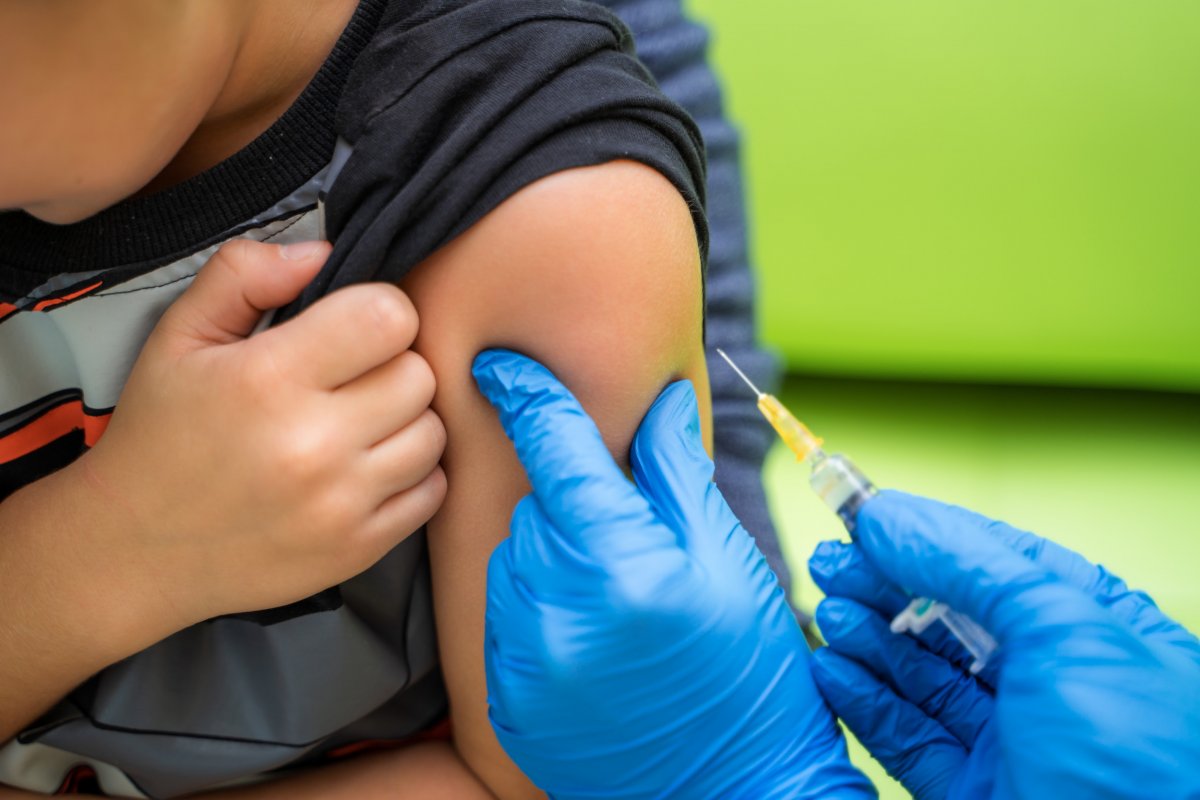Mumps cases have risen among vaccinated people, including children, a study by the U.S. Centers for Disease Control and Prevention (CDC) has found.
The research published in the journal Pediatrics analyzed mumps cases reported by U.S. health departments to show incidences of the virus in under 18s from 2007 to 2019.
The team that conducted the study found that one-third of mumps cases were in children and that the majority of those children were vaccinated. The study comes after cases fell by over 99 percent following the introduction of the mumps vaccine to the U.S. in 1967.
Since the mid-2000s, however, mumps cases have begun to rise again in the U.S., with infection rates peaking in specific years. The authors found that the majority of cases since 2006 involved college-age people and this led health experts to believe that this was due to the waning of immunity conferred by the vaccine.
However, in outbreaks of mumps in New York, Arkansas, and Guam since 2009, school-aged children who had received two doses of the CDC recommended measles, mumps, and rubella (MMR) vaccination accounted for 85 to 93 percent of mumps cases.
"Before that, large outbreaks of mumps among people who were fully vaccinated were not common, including among vaccinated children," Mariel Marlow, lead author of the study and an epidemiologist at the CDC, told NBC News.
Despite this, over half of the doctors who responded to a 2020 survey of U.S. pediatricians said they would rarely test for mumps in a fully vaccinated child demonstrating symptoms associated with the virus.
Marlow and her fellow authors advised doctors who see children with common symptoms of mumps to suspect the virus regardless of their vaccination status.
What are the symptoms of mumps?
The most common symptoms associated with mumps are puffy cheeks and a tender, swollen jaw, which arise because of swollen salivary glands under the ears on one or both sides. Physicians refer to this swelling as parotitis.
Before parotitis sets in, the person can demonstrate other symptoms such as a fever, headache, muscle aches, tiredness, and a loss of appetite.
These symptoms usually arise between 16 to 18 days after infection with the mumps virus, but some people can be asymptomatic. The symptoms are largely the same in adults and children.
Marlow said that vaccination against mumps does not just help prevent the virus, but can reduce the severity of symptoms. She said: "Disease symptoms are usually milder and complications are less frequent in vaccinated people."
How is mumps spread?
Mumps is transmitted by direct contact with saliva or respiratory droplets from the mouth, nose, or throat. This means someone infected with mumps can spread it through coughing, sneezing, or talking.
Sharing things like water bottles and cups that can harbor saliva also spreads mumps, as can kissing. Any close contact activities, such as sports and dancing, are likely to spread mumps, too.
Someone infected with mumps can spread the virus a few days before their salivary glands begin to swell to up to five days after the swelling begins.
Despite the rise in mumps cases in vaccinated children, the CDC says that the MMR vaccination is still the best way to prevent mumps.
Joseph Lewnard, assistant professor of epidemiology at the School of Public Health at the University of California, Berkeley, put the results of the study into perspective, suggesting that cases are still low and vaccinations are still effective.
He told NBC News: "We're talking about an infection that almost every kid in America would get before they were 20. Compared to the pre-vaccine era, kids who get the MMR vaccine remain extremely protected against mumps."
Dr. Sean Elias, post-doctoral immunologist and public engagement leader at the University of Oxford's Jenner Institute, previously spoke to Newsweek about viral infections in vaccinated people, commonly called breakthrough cases.
Elias said: "No vaccine truly provides 100 percent sterile protection against a disease and they don't necessarily need to, in order to be effective."

Uncommon Knowledge
Newsweek is committed to challenging conventional wisdom and finding connections in the search for common ground.
Newsweek is committed to challenging conventional wisdom and finding connections in the search for common ground.
About the writer
To read how Newsweek uses AI as a newsroom tool, Click here.






